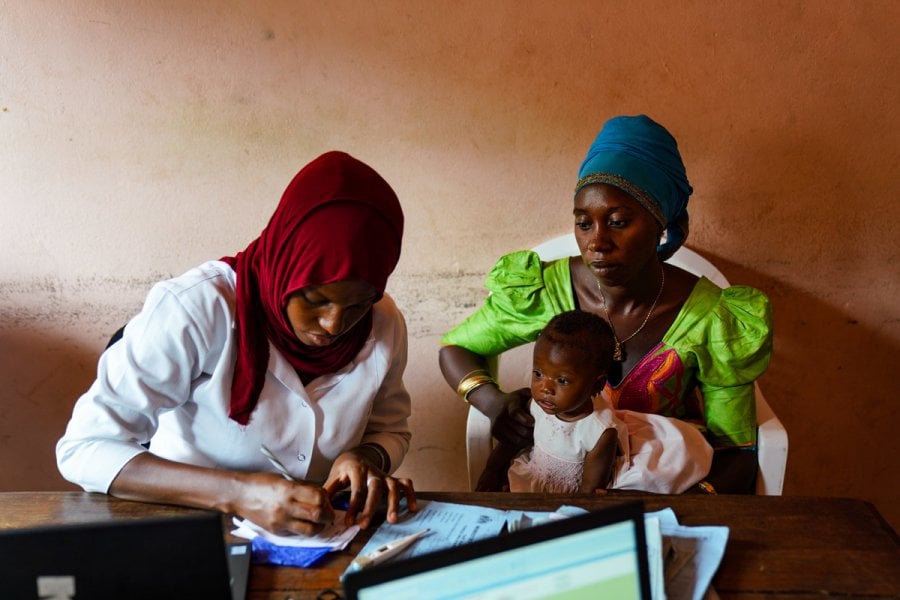Vaccine trials must engage with communities or risk failure, say social scientists
9 October 2020 London School of Hygiene & Tropical Medicine London School of Hygiene & Tropical Medicine https://lshtm.ac.uk/themes/custom/lshtm/images/lshtm-logo-black.png
Communication with COVID-19 vaccine trial participants and their communities, pre, during and post-trial is key to finding and delivering a successful vaccine, say social scientists from the Social Science in Humanitarian Action Platform (SSHAP), in a new brief published today.
The authors bring together evidence from past emergency vaccine trials and recommend the steps needed to counter the misinformation and mistrust that can occur, from fears around specific local trials, to broader concerns, including more widespread anti-vaccine views.
SSHAP is a partnership between the London School of Hygiene & Tropical Medicine (LSHTM), the Institute of Development Studies and Anthrologica, funded by the UK Foreign, Commonwealth and Development Office and the Wellcome Trust.
With many COVID-19 vaccine trials underway around the world, the briefing is published to explain the ways in which social science can inform the ethics, design, recruitment and community engagement, implementation and results dissemination for trials of emerging COVID-19 vaccine and therapeutic candidates.
Key recommendations include:
- Trial participants should be included in the design of trials from the beginning. Evidence shows that this leads to greater participation and more successful emergency vaccine trials.
- Local community dynamics and patterns of trust need to be understood before trials begin, including formal authority structures and informal sources of information or influence.
- Information about trials should be free flowing from, and to, communities via participant advisory groups and community consultations, including clear and accessible trial data during and after the trial has finished.
- Once a vaccine has been licensed, research on local dynamics and trust need to inform vaccine roll-out strategies.
- Rapid social science research needs to be included alongside national distribution mechanisms to ensure that rumours, concerns, and anxieties are identified in real-time, including analysis of social media.
Dr Shelley Lees, co-author of the research at LSHTM, said: “Without contextual understanding and positive community engagement, the negative impacts on trial participants and protests against vaccine trials themselves, could ultimately lead to trials collapsing and being shut down.
“This research is based on evidence from past emergency vaccine trials in West Africa, but these lessons apply as equally to Covid-19 vaccine and therapeutic trials in countries like the USA and the UK, as they do in countries in Sub-Saharan Africa and South America.”
Dr Lees also leads Project AViD (Anthropological Exploration of Facilitators and Barriers to Vaccine Deployment and Administration During Disease Outbreaks), which is exploring vaccine acceptance, and how to increase it during disease outbreaks, in the Democratic Republic of Congo, Sierra Leonne, Brazil, India and Uganda.
The research authors stress the importance of understanding local cultures and the realities on the ground of how vaccine trials are received by people at a local level. That contribution from social science alongside medical science is a vital part of finding and rolling-out an effective and safe vaccine.
Publication
Rose Burns, Luisa Enria, Alex Bowmer, Samantha Vanderslott and Shelley Lees. Clinical and Vaccine Trials for COVID-19: Key Considerations from Social Science. SHAAP research briefing.
Our postgraduate taught courses provide health practitioners, clinicians, policy-makers, scientists and recent graduates with a world-class qualification in public and global health.
If you are coming to LSHTM to study a distance learning programme (PG Cert, PG Dip, MSc or individual modules) starting in 2024, you may be eligible for a 5% discount on your tuition fees.
These fee reduction schemes are available for a limited time only.